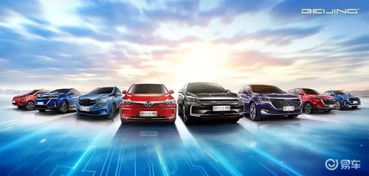北京牌新能源车能迁广东吗
Exploring Beijing's New Energy Vehicle Market
In recent years, Beijing has been actively promoting the adoption of new energy vehicles (NEVs) to combat air pollution and reduce carbon emissions. NEVs encompass electric vehicles (EVs), plugin hybrid electric vehicles (PHEVs), and fuel cell vehicles (FCVs). Let's delve into the realm of Beijing's new energy vehicle market to understand its dynamics, trends, and implications.
Understanding the Market Landscape
Government Initiatives and Policies
Subsidies and Incentives:
The Chinese government, including Beijing's local authorities, has been offering subsidies and incentives to both manufacturers and consumers to spur the adoption of NEVs.
Regulatory Measures:
Beijing has implemented strict emission regulations and vehicle quotas to encourage the use of clean energy vehicles.Market Players
Domestic Manufacturers:
Companies like BYD, NIO, and BAIC are prominent players in China's NEV market, including Beijing.
Foreign Brands:
International automakers such as Tesla, BMW, and Volkswagen have also entered the Chinese NEV market with a focus on Beijing due to its significant consumer base and government support.Trends Shaping the Market
Technological Advancements
Battery Technology:
Improvements in battery technology have led to increased driving range and reduced charging times, making EVs more practical for daily use.
Autonomous Driving:
Beijing is at the forefront of autonomous vehicle development, with companies investing heavily in selfdriving technology for NEVs.Shift in Consumer Preferences
Environmental Concerns:
Growing awareness of environmental issues has driven consumers in Beijing to opt for cleaner transportation alternatives.
Cost Savings:
Lower operating costs, including reduced fuel expenses and maintenance, make NEVs an attractive choice for budgetconscious consumers.Infrastructure Development
Charging Infrastructure:
Beijing has been expanding its network of charging stations to address the range anxiety associated with EVs.
Smart Mobility Solutions:
Integration with smart city initiatives is driving the development of innovative mobility solutions, such as electric vehicle sharing programs and intelligent transportation systems.Key Considerations for Consumers
Range and Charging Infrastructure

Consider Driving Habits:
Evaluate your daily commuting distance and access to charging stations to determine the suitable range for your needs.
Home Charging Options:
Assess the feasibility of installing a home charging station to enhance convenience and reduce reliance on public charging infrastructure.Financial Incentives and Subsidies
Research Government Policies:
Stay informed about the latest subsidies and incentives offered by Beijing authorities to maximize cost savings on NEV purchases.Vehicle Selection
Compare Models:
Explore a variety of NEV models available in Beijing to find the one that best suits your preferences in terms of range, features, and price.
Test Drive:
Schedule test drives to experience the performance and comfort of different NEVs before making a decision.Future Outlook
Beijing's commitment to promoting new energy vehicles aligns with broader national goals of achieving sustainable transportation and reducing greenhouse gas emissions. As technology continues to advance and consumer awareness grows, the NEV market in Beijing is poised for continued expansion. However, addressing challenges related to infrastructure development and consumer education will be crucial for realizing the full potential of clean energy transportation in the capital city.
Whether you're a prospective buyer, industry enthusiast, or policymaker, understanding the dynamics of Beijing's new energy vehicle market is essential for navigating its evolving landscape and contributing to a greener, more sustainable future.
版权声明
本文仅代表作者观点,不代表百度立场。
本文系作者授权百度百家发表,未经许可,不得转载。

















评论